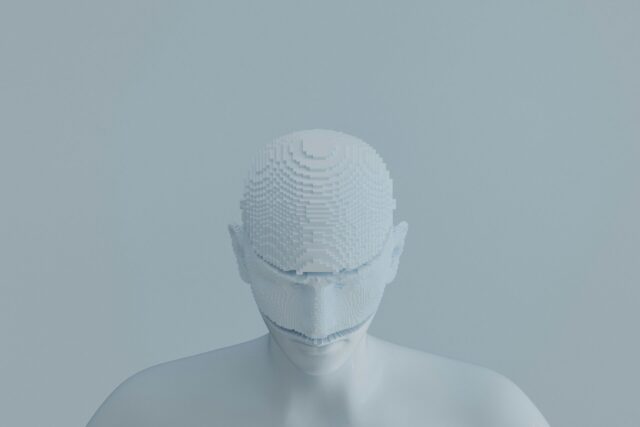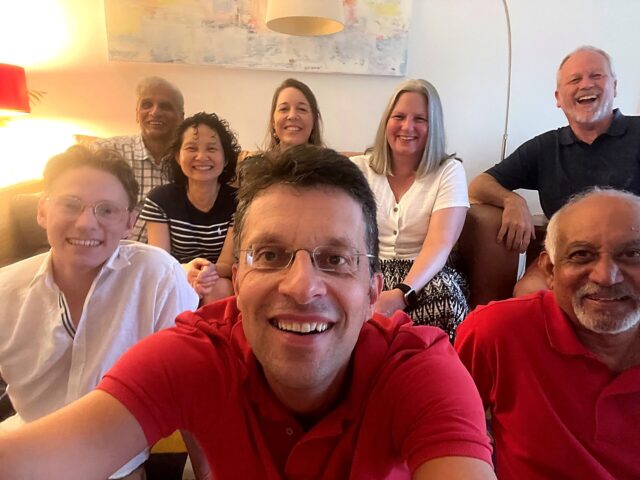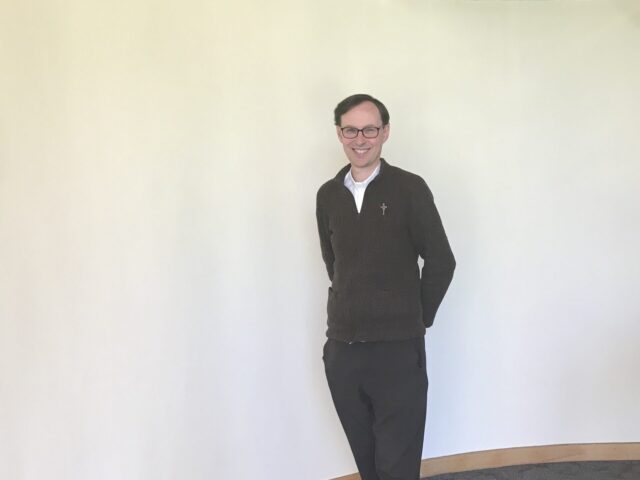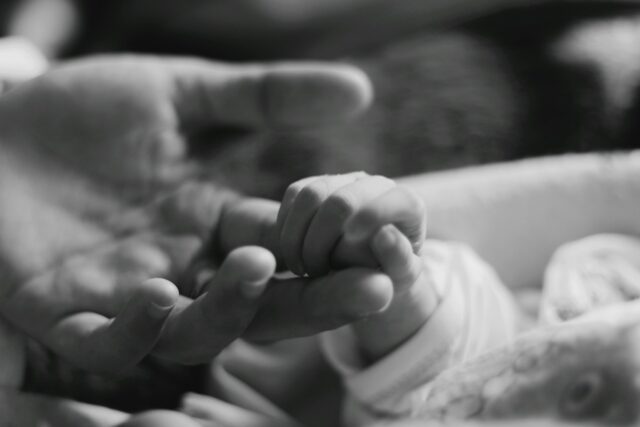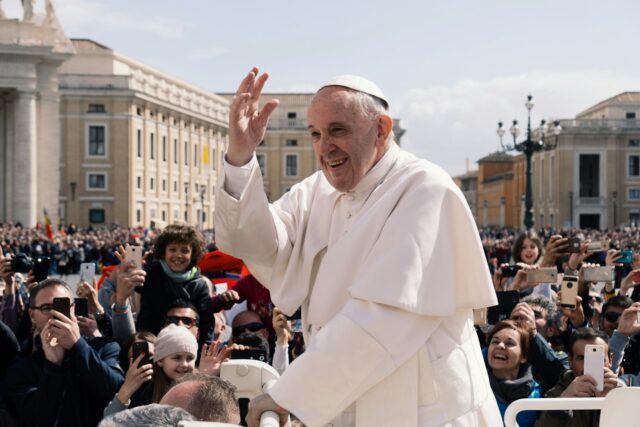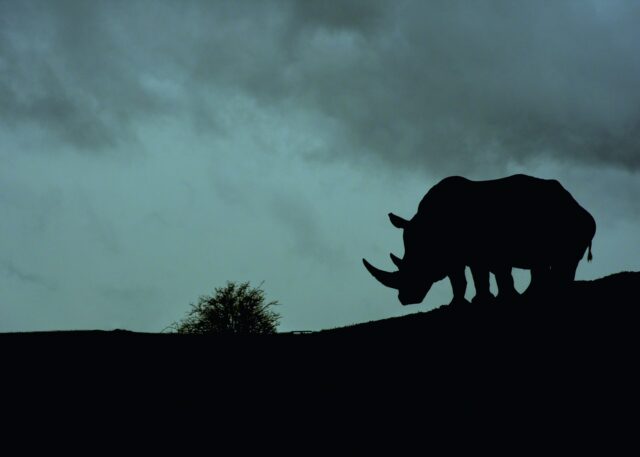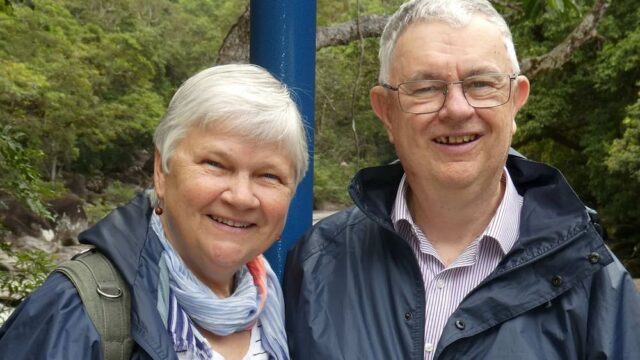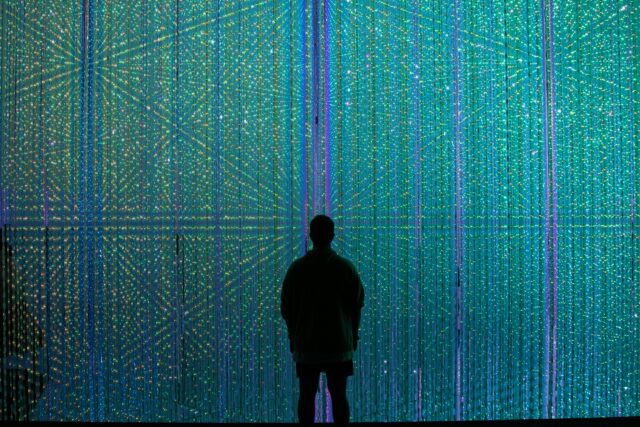


Peter R. Stork, MS, MA (theol.), PhD, is an independent researcher, a former Honorary Fellow of the Australian Catholic University, and a Fellow of the Institute for the Study of Christianity and Science & Technology (ISCAST). His interests are big-picture concerns like the crisis of human rights, theology and science, and René Girard’s cultural anthropology. He is the author of Human Rights in Crisis: A Cultural Critique (2006); Cosmos and Revelation: Reimagining God’s Creation in the Age of Science (2021) and several book chapters and articles.
This article is a re-production of a recent article on Peter Stork’s website (www.peter-stork.com). It is based on a public lecture given during a series of lectures arranged by the Emeritus Faculty of ANU in March 2011. The article was originally published in 2011 in the now defunct Australian e-Journal of Theology under a different title.
A response by A/Prof. Alan Gijsbers can be found here.
The title of my paper suggests a potentially controversial idea.[1] Controversy apart, listening to what a theologian has to say about common ground between science and theology rates probably among the rarer moments in the life of scientists these days. So, I am all the more grateful to the Emeritus Faculty of ANU for the opportunity to explore this topic as part of the annual lecture series.
Once there was a time when theologians pursued science and scientists studied theology because they were convinced that the underlying reality was one. But ever since the medieval synthesis of faith and culture fell apart in the tumultuous centuries between 1300 and 1650 CE, things have never been the same between these disciplines. As Western civilization began to chart a new and different course, the thrust of European thought was no longer going to arise within the Church. Historian Thomas Bokenkotter writes:
The thinkers who participated in this movement, known as the Enlightenment, covered the whole field of knowledge that was heretofore considered the exclusive province of the Church and offered a different view of the cosmos, of society, of history, of morals, and of religion … [giving] rise to a largely secular culture.[2]
Under the onslaught of critical rationalism, liberalism and radical doubt, the Church was placed in a state of siege as a new rationality challenged not only the then predominant epistemology of Aristotle, but also the validity of Biblical revelation and its traditional interpretation by the Church.
Against this unpromising historical backdrop, it is surprising that we can speak today of a ‘dialogue’ between science and theology. Perhaps more surprising still, this conversation has grown in recent decades into a highly focused cross-disciplinary venture. Scientists, theologians, and philosophers all over the world participate in this complex enterprise.[3] If present trends are indicative, this dialogue may even become one of the dynamic and transforming forces that will shape the future of Western culture.
Yet, misconceptions continue to abound, often upheld by the prestige of the natural sciences and the general belief in the intellectual superiority of scientific rationality. Scientists (and a good part of the general public) tend to believe that a scientific explanation renders any other explanation superfluous.[4] On the other hand, it is encouraging to note that the old combat model that characterized the relation between science and theology for so long is on the way out. One of the cultural developments that brought this about was the post-modern rejection of a reigning paradigm. The resultant cognitive pluralism now confronts every academic discipline.[5] New forms of cross-connectivity between different cognitive approaches are needed and interdisciplinary communication becomes unavoidable. Not only must new pathways to knowledge be found that transcend traditional disciplinary boundaries, but also synergetic ways whereby the intellectual resources of the disciplines enrich each other. The dialogue between the natural sciences and theology is part of this larger movement.
Among the theologians, Jürgen Moltmann appears as a particularly suitable partner in my exploration. His theology develops in open dialogue with the world around him, including other academic disciplines. At the same time, he believes that all theology is necessarily provisional and hopes that his readers will engage with his thoughts in a dialogical manner.[6] Besides, Moltmann recognized early the growing need for interdisciplinary work. How he envisages the unfolding of this search for new connectivity between science and theology is the main focus of this paper.
So, let me first introduce Jürgen Moltmann briefly. Then, I will outline the intellectual-historical background of his sapiential proposal before exploring ‘wisdom’ as interdisciplinary space between the two disciplines.
Jürgen Moltmann
Jürgen Moltmann is a Protestant theologian, Emeritus Professor of Systematic Theology at the University of Tübingen. He was born in 1926 in Hamburg. He is known as the foremost progenitor of the “theology of hope” and was the first to incorporate the struggle of the oppressed and the urgent need to care for the ecology into the mainstream of theological thought.
As a high school student, he aimed at a career in science; mathematics and physics where special interests. These plans were disrupted in 1944 when he was drafted into the German army. He became a Prisoner of War in 1945 and spent the next three years in PoW Camps in England and Scotland. This experience proved to be life changing. The devastation wrought by the Second World War together with images of Nazi death camps caused a deep sense of remorse. He lost all hope in German culture. When he was given a New Testament to read, he encountered the Christian message of salvation and ultimate hope for the first time. Gradually he identified more and more with the Christian faith and later claimed, “I did not find Christ, he found me.” In a camp near Nottingham run by the YMCA he had opportunity, along with others, to begin theological studies and came to see a connection between suffering and hope which left a lasting impression on his later theology.
Returning to Germany in 1948, he gave up his earlier career plan without losing his deep interest in science. He studied theology in Göttingen where he received his doctorate at the age of 26. After four years as a pastor in a rural community and six years as lecturer at the Confessing Church Seminary in Wuppertal, he became professor of theology first in Bonn, then, since 1967, in Tübingen where he remained until his retirement.[7]
In Moltmann’s view, theology should be done with the end in mind. Such a theology looks forward to the day when ‘all things will be made new’ according to God’s promise in Christ. In other words, a proper theology would have to be constructed in the light of its future eschatological goal. By focusing attention toward the future, this theology brings future events into the here-and-now so that the hope of the ultimate future becomes hope for today. He writes, “in the medium of hope our theological concepts become not judgments which nail reality down to what it is, but [they are] anticipations which show reality its prospects and its future possibilities.”[8] In a comment on Moltmann’s approach Trevor Hart observes: “hope thus forces a radical reinterpretation of the present … [because] the present does not contain its full meaning within itself, but only in its relatedness of what is yet to come.”[9]
Moltmann has explored the interrelationship between theology and scientific reason at length in a major work God in Creation (1985).[10] In his later book Science and Wisdom (2003), he returns to the subject but from another angle.[11] Here he distinguishes between two kinds of knowledge. One reduces scientific discoveries to mere instrumentalities for the manipulation and exploitation of the physical world. The other leads to wisdom, that is, to an understanding that moral and spiritual limits exist beyond which humans, in their use of the physical world, venture at their peril. Moltmann is highly critical of the bifurcation of knowledge that separates the sciences from the humanities. This split deprives the sciences of basic moral commitments and, since theology has ceased to study ‘the book of nature’, it has lost access to the physical world as it is. This “double track of the Western mind” also deprived the world of access to wisdom.[12]
As mentioned, Moltmann’s theology is characterized by its openness to dialogue and is open to input from other academic disciplines. Because his work is grounded in the eschatological perspective of his theology of hope, it is inherently ‘open’ in a structural sense. Such a theology relates to the world for the sake of its future as Richard Baulkham comments:
The genuine openness of this future ensures that theology does not already know all the answers but can learn from others and from other approaches to reality. At the same time the Christological starting point, in the light of which the future is in Jesus Christ, keeps Christian theology faithful to its own truth and so allows it to question other approaches and enter into critical dialogue with them.[13]
This brief summary of pertinent aspects of Moltmann’s theology provides us with signposts for an engagement with him. It also foreshadows what one might expect from the proposal that science and theology have more in common than commonly believed.
Historical-Intellectual Background
As intimated in the introduction, Moltmann’s proposal for a joint exploration of wisdom as interdisciplinary space between science and theology has its roots in his theology of hope. This hope projects eschatological wholeness into a fragmented historical process. The shattering of the medieval synthesis that drove the sciences and the humanities apart is encompassed in this hope for a re-cognition of the unity that underlies all existence. Placing Moltmann’s proposal in its historical-intellectual context will allow us to see both the urgency for this interdisciplinary work as well as some of the obstacles that stand in the way.[14]
Today, most people are content that the sciences are free to arrive at their own world of knowledge based on their own theoretical horizons, untrammelled by religious dogma. If this has not always been the case, the cause lay in the clash between religion and rationalism at the beginning of modernity.[15] However, historian Arnold Toynbee reminds us that the modern collision between “heart and head” was not the first of its kind in world history. Earlier clashes had occurred when Hellenic and Indic philosophies met pagan religions that were inherited from earlier, more primitive civilizations. Christianity, Buddhism, Islam, and Hinduism each in their own history collided with solidified versions of older forms of rationalism. What emerged as ‘orthodox’ theology was a product of ‘accommodation’. The rising religion could not ignore pre-existing systems of ideas so that eventually Hindu theology was presented in terms of Hindic philosophy, and Christian and Islamic theology in terms of Hellenic philosophy.
However, later collisions differed from earlier ones in several ways. These so-called ‘higher religions’ exhibited a new distinctive feature: the rival truth of revelation received by their prophets. Since these truth claims where presented in terms of philosophical propositions – now in the name of deity – revelation truth claimed superiority and called for unwavering personal commitment. Toynbee writes: “Truth became disputed mental territory; henceforward there were two independent authorities, prophetic Revelation and philosophical Reason, each of which claimed sovereign jurisdiction over the intellect’s whole field of action.”[16]
As ‘revelation’ and ‘reason’ laid claim to overriding validity, the stage was set for only two options: compromise or combat, a position that has persisted until this day. In Western culture, especially since Galileo and Descartes,[17] the advance of scientific knowledge was accompanied by an unfortunate reductionism that excluded the Bible and theology from all non-religious considerations. At the same time, under the pressure of rationalism, theology, particularly in the Protestant tradition, surrendered the traditional conception of the unity of truth and has barely shifted its position since.
According to Moltmann, this reductionism exerted a twofold effect on Western thought. It separated the scientific mind and thus the physical world from the framework of Christian hope and it denied theology any insights into the world as it is.[18] Thus the physical world was cut off from the notion of salvation which increasingly became a matter of indifference, even of irrelevance. Once the world was abstracted into an ‘objective world’, the separation of the sciences from the humanities was inevitable.
As nature became abstracted from history, humans became self-assured subjects that ruled nature no longer in need of divine wisdom. After all, after Descartes there was no longer room for a spiritual understanding of reality resulting “in a view of the mind and spirit without nature, and a view of mind, spirit and nature without God.”[19] This denial of the spiritual dimension of reality is still in vogue as a recent proposal in practical philosophy shows. Although its author laments the absence of wisdom in society defined as “learning how to become civilized,” he nonetheless insists that this “seriously defective form” of the Enlightenment program can be rectified with the tools of the Enlightenment.[20] Another philosopher, Robert Sternberg is concerned that – in the light of massive global conflicts – increases in IQ do not translate into better relationships. He presents wisdom as a desirable cognitive skill (among others) for the achievement of the common good, especially among the young. Here, too, we note the absence of reference to the spiritual dimension of reality in general and of human nature in particular. Nonetheless, aware of the fragmentation of the disciplines, both authors call for a deeper integration of learning across the disciplines.[21]
Developments towards abstraction and objectification also affected the sciences as well as the worldview they spawned. Positively, science replaced the mythological interpretation of the world. The world was understood as being subject to laws, and its phenomena were open to investigation. This appreciation led, however, to the conception of a close congruity between scientific findings and reality. With this move, science became the final arbiter for the development of knowledge and truth finding. It gave rise to the idea that the relation between human beings related to nature in a subject-to-object relationship. At the same time, this objectification of nature led to the unfortunate pattern of domination and exploitation.
These developments were costly for theology. Separated from nature it could no longer speak of God and salvation in reference to the whole. Moltmann writes: “A retreat into the inwardness of the human heart leads faith into a ghetto in which it spoils and decays.” Yet the vision of the whole was not entirely lost as Enlightenment philosopher Friedrich Hegel affirmed. Such a dichotomy was impossible to maintain, he argued, for neither side can be silenced at the expense of the other: subjectivity and objectivity, spontaneity and rationality were interdependent and mutually conditioned in their historical existence.[22]
Two other effects must be mentioned before we move on. Christian theology was once – along with philosophy – able to bring universal problems to the center of academic attention. Because theology asks questions of ultimacy, it can still play such a role potentially. Whether theology will qualify (again) depends on its ability to rise to the level of a genuine, constructive dialogue with the sciences and other academic disciplines. In addition, theology must earn its credibility with a disenchanted public and with the other religions without compromising the apostolic witness to the Christ-event. This is the so-called ‘crisis of theology’ today.[23]
Despite much public confidence in the superiority of scientific rationality, the sciences too face a crisis of credibility. In the light of global challenges, the public fears that under the influence of relentless scientific specialization the disciplines move further and further apart. As a result, chances are diminishing of integrating our vast knowledge for the benefit of global solutions. In addition, science is meaningless without civilization. Since humanity has not yet learned to become civilized, only a revolution in interdisciplinary and life-oriented inquiry has a chance of rectifying it, as Maxwell has well argued.[24]
There are other factors that contribute the so-called ‘crisis of science’ today. The forces of nature were once considered mysterious, divine, and even demonic, have become scientifically intelligible. Yet, this intelligible world also displays a high degree of ambiguity. While it yields answers to the question “how does it work?” it does not tell us whether the world has a purpose and where it is going. No doubt, science and technology promise vast potential for human flourishing, but their extraordinary achievements also pose serious threats to human existence. Moreover, in recent decades, modern physics has shown us a world that appears to be less and less real as the sciences record ongoing and accelerating processes in vastness of the unseen. This changing character of physical reality raises new questions even in the scientific community about the philosophical implications of their discoveries. There are signs that these questions may lead scientists to exchange views with theologians.[25] Even now scientists realize that reality is bigger than us, that knowledge is personal, and that truth-seeking involves a commitment to truth not unlike that of religious faith, as Michael Polanyi has noted.[26] In other words, today both scientists and theologian have solid professional reasons to talk to each other. As scientists and theologian continue to work in the shadow of the historical schism, they face nonetheless the common question of the future. From what we know about the world, the future will demand the setting of new priorities and a commitment to tackle this interdisciplinary project with greater seriousness and on a broad scale.
At the same time, we must not close our eyes to the obstacles that stand in the way of a broadbased science-theology dialogue. Few scientists believe that theology can contribute to their work, while few theologians are competent to engage creatively with scientific findings and incorporate them in their theology.[27] As a solution on the theological side, Moltmann suggests an important shift in theological concerns. Theology must move away from private religious considerations to broad existential questions. Theology must step out of its “confinement to church, belief, and … inwardness” and embark on an experimental quest along with others “for the truth of the whole and the salvation of a torn and disrupted world.”[28] With this shift theology would again affirm the unity of truth, which the medieval synthesis took for granted. Only then this unity was based on tradition. Today, it must be rediscovered through interdisciplinary scientific inquiry out of sheer necessity in the face of unavoidable pressures for the sake of human survival.[29]
Wisdom as Interdisciplinary Space
As noted earlier, in the quest for discovering the laws of nature the scientific method gained in credibility while the realm of theology was confined to matters of ‘salvation’ and moral values. I also pointed out that this separation entails dangers for both disciplines. When science is deprived of its interaction with theological doctrine, especially with the doctrine of creation, it is reduced to a soulless instrumentality, while theology when disconnected from science loses its vision and concern for the whole of the created order. But theology to be true to its vocation “asks about the future of the whole – its salvation or its doom.”[30] In other words, theology has a role to play in the scientific enterprise: to provide a moral base for the sciences and to fulfill its own calling within the world. This implies the existence of a genuine and purposeful dialogue between theologians and scientists. Such an endeavor would be rewarded by the discovery of practical wisdom about the place of humanity and its future within an evolving cosmos. The link with ethics is obvious. In Moltmann’s words, “Without abstraction from world history, we cannot learn anything scientifically; but this detachment must be continually absorbed into responsibility of human beings for the whole.”[31]
There are other reasons why this joint search is necessary. When science answers questions about the ‘what?’ and the ‘how?’ it operates within its competencies, but it steps outside when it tries to answer questions about the ‘why?’ and about ‘purpose’. Yet it is the mere existence of such questions that points to a human need for cohesion and meaning in our comprehension of the world, which science cannot confidently provide.
At the same time, we note that the development of knowledge in science and in theology is not linear but subject to discontinuities arising from within a contingent (and fundamentally open) historical process. According to his theology of hope, Moltmann holds that “the future of history can [provide meaning] only in the mode of expectation.”[32] In the philosophical key, as Nicholas Rescher has concluded, we must be content in all our theorizing with provisional findings, with best estimates of plausibility, even with conjecture.[33] And it is in these provisional and open horizons of our knowledge where Moltmann sees a rich space for interdisciplinary reflection.
The vista of the open future in the process of differentiation between subjectivity and objectivity, leads to a new state of reflection. Human beings no longer stand over against nature, as the determining subject of knowledge and endeavour … they are also part of a history with nature.[34]
Here human solidarity with nature becomes the starting point of the new theological and scientific reflection that would take into account on the one hand the intelligibility of the universe and its correlation with human intelligence. On the other, it would consider the experience that any genuine pursuit of truth in the natural sciences always leads to questions of ultimacy. Taken together, the emerging focus would make feasible the conception of a systematic exploration of links between the ‘world as we know it’ and another, transcendent reality. Such an approach runs certainly against the grain of purely instrumental inquiries that are merely concerned with questions of how to manipulate nature. But provided the new research agenda was guided by “the predetermined intention to search for human wisdom about life … a dialogue emerges between the natural wisdom that has been discovered and the human wisdom that has been learnt.” In other words, there are theoretical and practical benefits to be gained from Moltmann’s sapiential approach. After all, “not all knowledge furthers life – not every perception makes us wise.”[35] But there is more. “In seeking wisdom, we discover and learn. We discover an already given wisdom present in the build-up of matter and the stages of organic life.” When therefore the sciences investigate the build-up of matter and of life, Moltmann argues, they read “stored primordial memory” and this “stored memory” deserves the name wisdom. Therefore, scientific observations and experiments are needed “not just for the purposes of gathering information, but also in order to learn the wisdom which is inherent in them.”[36]
Interestingly, a Jewish scientist, Gerald Schroeder, formerly with MIT, now with the Weizmann Institute in Israel writes independently along similar lines:
The discoveries of science, those that search the quantum nature of the subatomic realm, those that explore the molecular complexity of biology, and those who probe the brain/mind interface, have moved us to the brink of a startling realization: all existence is the expression of an all-encompassing wisdom that pervades the universe. . . . Every particle, every being, from atom to human, appears to have within it a level of information, of conscious wisdom. . . . The information just appears as given, with no causal agent evident, as if it were an intrinsic facet of nature.[37]
Schroeder’s key theme is wisdom. Throughout his book, Schroeder shows evidence that wisdom was built into the system, arguing that wisdom is the basis of information and that our universe may be the manifestation of information.
Both Moltmann and Schroeder are intimating that the amazing, often illogical discoveries in physics and biology have given us, in Schroeder’s words, “tools to gain scientific insights into the metaphysical underpinnings of our world, and in return, to acquire spiritual insight into scientific empirical fact.” Schroeder continues: “By realizing the interwoven complexity of existence, we experience the oneness both by revelation and by reason.” [38] Reading this language in the light of Moltmann’s proposal, we detect a theme that allows us to draw some contours of the interdisciplinary space that opens up:
· The universe may be understood as the expression of a metaphysical idea, as information, or wisdom.
· We can know much about a putative creator within the physical universe, but without theology we cannot derive meaning from this knowledge.
· While we may conceive of a science without theology, a theology without reference to science is out of step with reality; if the first item is affirmed, the same must be said of science without reference to theology.
In other words, the perception of classical science that divided the world by subject and object is no longer a fitting starting point for our understanding of theology and of modern science. Science today must focus on networks of interdependent relationships including the relationship between nature and humans. As it is, science itself has become “an actor” in the interplay between humans and nature. Moreover, we now understand the world better in terms of open systems. This understanding emphasizes ‘communication and cooperation’, a development that clearly plays into the hands of a joint search for wisdom. What Moltmann suggests is a return to the Hebrew tradition of ‘participative knowing’, “in which the knower opens himself or herself up to the other in receptivity, love and wonder and perceives himself or herself in mutual relationship with the other … .”[39] Such knowing becomes a life-saving issue in the context of the ecological crisis. According to Moltmann, the aim of our searching should be a “symbiosis between human and non-human systems … capable of survival.”[40] However, unless grounded in a deep reverence for life, such an abstract formulation would be insufficient to guide the new search agenda.
But how are we to find that interdisciplinary space? The short answer is, ‘in an attitude of wonder.’ We enter it, when we return to the intuitive perception of awe that is awakened when we see something for the very first time. In such a state of mind we no longer speak as if we ‘have discovered something’ but as if ‘something has disclosed itself to us.’ In that place, we suddenly realize that we are in the presence of something that belongs to the nature of things and are prompted to acknowledge its beauty despite our technical sophistication that allowed us to detect it in the first place.[41] We have encountered something that has been given to us to know. “The discovery corresponds to the revelation.”[42] Judging from my own experience, both scientists and theologians are familiar with this experience. When we are awed by what we have been allowed to see, when our perception is wrapped in wonder over the ‘new’, when we break out in spontaneous applause of a greater reality, we have entered the space where wisdom may be found.
But there is more. As researchers, we are part of the universe that is seeking itself – held in tension between the material and the emotional-spiritual dimension we all feel at times. Then we cannot help asking whether that which we see on the surface as diversity may not be, on closer study, unity; whether the material side of things is not merely a dress, a camouflage of a profounder reality. In those moments a deeply satisfying, joyful surge sweeps through our entire being and we know that we ourselves have been touched by a strange yet thoroughly familiar reality. If all of this sounds too subjective for the ears of scientists, let me call Albert Einstein as a witness:
This most beautiful and most profound emotion we can experience is the sensation of the mystical. It is the sower of all true science. He to whom this emotion is a stranger, who can no longer wonder and stand rapt in awe, is as good as dead. To know that what is impenetrable to us really exists, manifesting itself as the highest wisdom and the most radiant beauty which our dull faculties can comprehend only in their most primitive forms—this knowledge, this feeling is at the center of true religiousness.[43]
Lastly, we must consider the question how to work in this space. If this search for wisdom is for the sake of the whole truth (wherever it may be found) and for the sake of human survival and wholeness, we understand why Moltmann calls to mind the Biblical tradition which affirms that “the fear of the Lord is the beginning if wisdom,” (Psa. 111:10; Prov. 9:10). This is not the dread of the numinous, but the deep personal reverence and humility humans experience in the presence of immeasurable goodness.[44] We are thus reminded that the aim of this enterprise can never be a trifle but must always be something to be held in the highest esteem and reverently sought after. Reference to ‘the fear of the Lord’ also shows us our limits and delivers us from an inflated self-concept that so easily is content with the physical side of life alone. Lastly, it saves us from the obsession with power, the prideful claim of scientific omniscience, and from “the delusion of total feasibility.”[45] In other words, the Biblical tradition suggests a dimension of experience that points to an ethical wisdom allowing us to live prudently with science and technology. In this context let me quote Moltmann for the last time in this paper:
“The last fifty years have brought us such an enormous increase in our knowledge that what we need in the immediate future is a still greater increase of wisdom, and of wise dealing with what we know. For the future belongs, to put it provocatively, not to science but to wisdom – if humanity wants a future at all.”[46][47]
Werner Heisenberg, too, speaks in those terms in his Physics and Beyond referring to “a ‘central order,’ the ‘one’ with which we communicate in the language of religion,” because for him the very idea of truth was bound up with the reality of religious experience.[48] Perhaps, and this is my hope at the end of these thoughts, we have sensed something of the wholeness and givenness of the reality behind all our searching. Perhaps we have even sensed an unspoken condition for exploring this new interdisciplinary space: neither to tear this fabric of reality apart out of unwarranted fear of each other nor turn it into an object of rivalistic desire, for it does not belong to us. Ω
Author
Peter R. Stork, MS, MA (theol.), PhD, is an independent researcher, a former Honorary Fellow of the Australian Catholic University, and a Fellow of the Institute for the Study of Christianity and Science & Technology (ISCAST). His interests are big-picture concerns like the crisis of human rights, theology and science, and René Girard’s cultural anthropology. He is the author of Human Rights in Crisis: A Cultural Critique (2006); Cosmos and Revelation: Reimagining God’s Creation in the Age of Science (forthcoming 2021) and several journal articles.
Notes
[1]This paper is an expanded version of a public lecture given at the Emeritus Faculty of the Australian National University (ANU) on 16 March 2011. It explores the notion of wisdom as a possible point of contact between science and theology. Provided science and theology enter this space, German theologian Jürgen Moltmann suggests, the intellectual resources available within the two disciplines can mutually enrich each other, even though this has not been the popular perception for the last 150 years. The term “science(s)” includes the methods, discoveries and descriptions of the natural sciences.
[2] Thomas Bokenkotter, A Concise History of the Catholic Church, revised and expanded. (New York: Image Books, 1990), 231.
[3] I am thinking particularly of the ground-breaking work of Ian Barbour, Philip Clayton, George Ellis, Owen Gregersen, Malcolm Jeeves, Philip Hefner, John Haught, Alister McGrath, Jürgen Moltmann, Nancey Murphy, Wolfhart Pannenberg, Arthur Peacocke, Ted Peters, John Polkinghorne, Robert John Russell, Howard Van Till, and many, many others.
[4] John M. Templeton and Robert L. Herrmann, Is God the Only Reality? Science Points to a Deeper Meaning of the Universe (New York: Continuum, 1994), 71.
[5] For instance, in the world of science studies, what theorists seem to agree on are their disagreements with each other as the following anthology of conference papers shows (Stanford University, 1991): Peter Galison and David J. Stump (eds.), The Disunity of Science: Boundaries, Contexts, and Power (Stanford: Stanford University Press, 1996).
[6] Richard Baulkham, The Theology of Jürgen Moltmann (Edinburgh: T & T Clark, 1995), x. [herafter TJM].
[7] For further biographical details see Moltmann’s autobiography, A Broad Place (London: SMC, 2007).
[8] Jürgen Moltmann, Theology of Hope: On the Ground and the Implication of Christian Eschatology (New York: Harper & Row, 1967), 35. [hereafter TH].
[9] Trevor Hart, “Imagination for the Kingdom of God,” in God Will Be All in All: The Eschatology of Jürgen Moltmann, Richard Baulkham (ed) (Edinburgh: T & T Clark, 1999), 63.
[10] Jürgen Moltmann, God in Creation: A New Theology of Creation and the Spirit trans. Margaret Kohl (San Francisco: Harper & Row, 1985), [hereafter GC].
[11] Jürgen Moltmann, Science and Wisdom, trans. Margaret Kohl (Minneapolis: Fortress Press, 2003) [hereafter SW].
[12] Moltmann, SW, 1-29.
[13] Baulkham, TJM, 7 (original emphasis).
[14] Although others too have written on this issue, for instance Celia Dean-Drummond on the interrelationship of biological reality with spiritual experience and the intersection with faith, for reasons of space I have limited this paper to an exploration of Moltmann’s work.
[15] ‘Modern’ does not mean “contemporary” but refers to the period in the history of ideas since the Enlightenment.
[16] Arnold J. Toynbee, A Study of History, Abridgement of Volumes VII-X by D. C. Somervell (Oxford: Oxford University Press, 1957), 96. This cleavage is more readily understood from a Protestant than from a Roman Catholic theological perspective.
[17] For summaries of this historical development cf. Ian Barbour, Issues in Science and Religion (New York: Harper, 1966), and Alister E. McGrath, Science & Religion: An Introduction (Malden, Mass.: Blackwell, 1999).
[18] Moltmann, SW, 3. For instance, the second law of thermo-dynamics predicts the dissipation of energy, that is, an increase of entropy in the cosmos. Such a destiny conflicts with Christian eschatology that looks forward to a transformed creation because Christ was raised from the dead. Should no such transformation occur, this scientific prediction has theoretically the power of falsifying Christian beliefs.
[19] Moltmann, SW, 4.
[20] Nicholas Maxwell, “Can Humanity Learn to Become Civilized? The Crisis of Science Without Civilization,” Journal of Applied Philosphy 17.1 (2000): 29 – 44.
[21] Robert J. Sternberg, “What is Wisdom and How Can We Develop It?” The Annals of the American Academy of Political and Social Science 591 (2004): 164 – 174.
[22] Moltmann, SW, 5.
[23] Moltmann, SW, 18 – 19.
[24] Maxwell, “Can Humanity Learn”, 29.
[25] John M. Templeton and Robert L. Herrmann, Is God the Only Reality? Science Points to a Deeper Meaning of the Universe (New York: Continuum, 1994), 9-11.
[26] Michael Polanyi, Personal Knowledge (London: Routledge, (1958), 1997).
[27] Moltmann, SW, 24.
[28] Moltmann, SW, 7.
[29] Moltmann, SW, 7.
[30] Moltmann, SW, 6 (original emphasis).
[31] Moltmann, SW, 22.
[32] Moltmann, SW, 19.
[33] Cf. Nicholas Rescher, A System of Pragmatic Idealism (Princeton: Princeton University Press, 1992), 85.
[34] Moltmann, SW, 15 (original emphasis); cf. also Moltmann, SW, 69.
[35] Moltmann, SW, 26.
[36] Moltmann, SW, 28 (emphasis added). Evolution itself may be regarded as a complex process of learning exemplified by molecular combinations of the genetic code and its way of transmission.
[37] Gerald L Schroeder, The Hidden Face of God: How Science Reveals the Ultimate Truth (New York: The Free Press, 2001), xi. [emphasis added].
[38] Schroeder, The Hidden Face of God, xiii.
[39] Baulkham, TJM, 225.
[40] Moltmann, SW, 49.
[41] Moltmann, SW, 141– 45.
[42] Moltmann, SW, 143.
[43] John M. Templeton and Robert L. Herrmann, Is God the Only Reality? Science Points to a Deeper Meaning of the Universe (New York: Continuum, 1994) 19. The authors quote Lincoln Barnet from his book The Universe and Dr. Einstein (New York: Signet, 1948), 118, who in turn quotes Einstein.
[44] Moltmann, SW, 142.
[45] Moltmann, SW, 157.
[46] Moltmann, SW, 169.
[47] Templeton and Herrmann, Is God the Only Reality?, 20.

